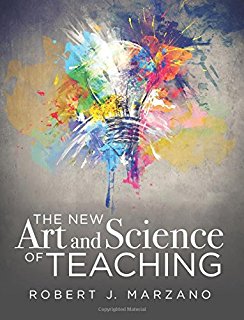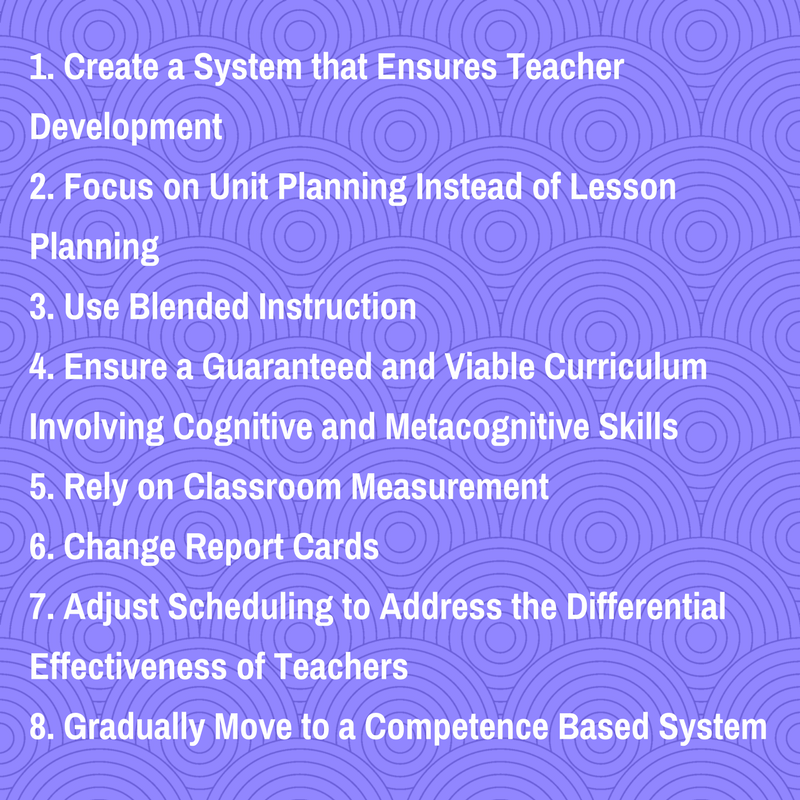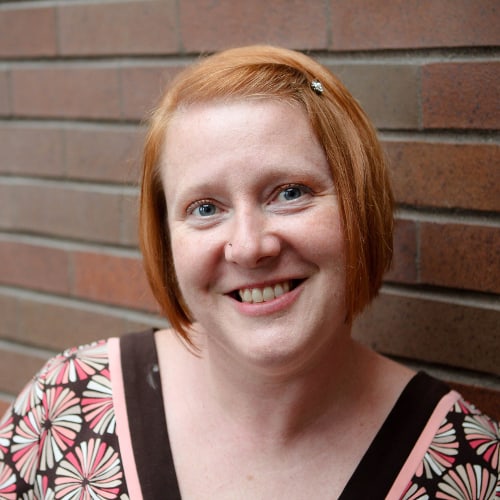Marzano R 2017 The New Art and Science of Teaching
Smart Review | The New Art and Science of Teaching
- Leadership
- Smart Teachers


The book identifies over 330 specific strategies that converge the artistry of teaching with scientific enquiry spanning decades. The familiar Marzano vocalisation is ever-present in this new edition, simply in that location is an underlying phone call to action that operates on a larger scale, and I can't help but note the give-and-take option of "manifesto" as quite appropriate.
As a long time Marzano devotee, I was pleasantly surprised that the volume retained the magic of the original while likewise approaching learning from a new perspective. The three overarching categories in The New Art of Science and Didactics are a shift from the first edition in that the original was what the teacher must practise, while this new edition draws from what must happen in students' minds in order to be successful learners. This shift reflects the changing attitudes in education and the influence of growth mindset.
The highlight for me, every bit a reader very familiar with the original, is the "Implications for Alter" section at the end of each chapter. Marzano does non mince words, and but equally a manifesto implies, he lays out exactly what needs to exist done in social club to craft a paradigm that works for education.
For example, in "Conducting Practicing and Deepening Lessons" he calls upon teachers to provide opportunities for students to larn new sets of skills, not just academic content. He explains, "I believe the the college-and-career-readiness skills embedded in this blueprint area represent a new curriculum that teachers must encompass in concert with bookish content."
Marzano is not alone in the world of education with this suggestion, merely he is perhaps the clearest in the "how" to brand this happen, which he lays out in Chapter 11, "Making Arrangement Changes."
In this chapter, his recommendations will cause many teachers to desire to stand up and cheer. Of his 8 recommendations, the one that most striking dwelling house for me was "Rely on Classroom Measurements," as information technology asks us to "rely on teacher-designed assessments, thus altering the most complete reliance on tests administered exterior the confines of regular instruction." As any teacher who's experienced the roller coaster of high stakes assessments knows, there are ameliorate ways to see what a child has learned. Ultimately, Marzano recommends a measurement procedure (which he explains in depth in chapter 2) because it allows teachers access to the "rich data that are bachelor from classroom assessments."

The hard part of reading Marzano's amazing recommendations is knowing that it takes an entire organization to make them happen. For instance, many of united states of america know the perils of the locked in schedule and struggle with accurately conveying student growth on study cards, yet classroom teachers don't usually have the authority to make these changes. This leads me to an important recommendation regarding this book: become it into the hands of administrators and policy makers.
Marzano's extensive enquiry and career-long dedication to best practices lend gravitas to the problems that teacher's vocalism. Too ofttimes, teachers have ideas that are untested, and we don't accept the data to support the decisions; however, chapter xi is just the manifesto we've been looking for to explicate the "how" to reform didactics.
For those not familiar with Marzano, or those new to education, this is the perfect primer of time-tested, teacher-canonical, research-based strategies and the data to support them. It is dense, to exist sure, but it is exceptionally readable and user-friendly with a nicely defined construction, dandy index and likable tone. Marzano ends the book as strongly as he began, reiterating that these pages hold the power to "transform the nature of Grand-12 schooling." This reader thoroughly agrees.

Amber Chandler
Bister Chandler is a centre school teacher at Frontier Middle Schoolhouse in Hamburg, NY.
Discover the latest in learning innovations
Sign upwards for our weekly newsletter.
varnermannery1952.blogspot.com
Source: https://www.gettingsmart.com/2017/03/21/smart-review-the-new-art-and-science-of-teaching/
0 Response to "Marzano R 2017 The New Art and Science of Teaching"
Postar um comentário